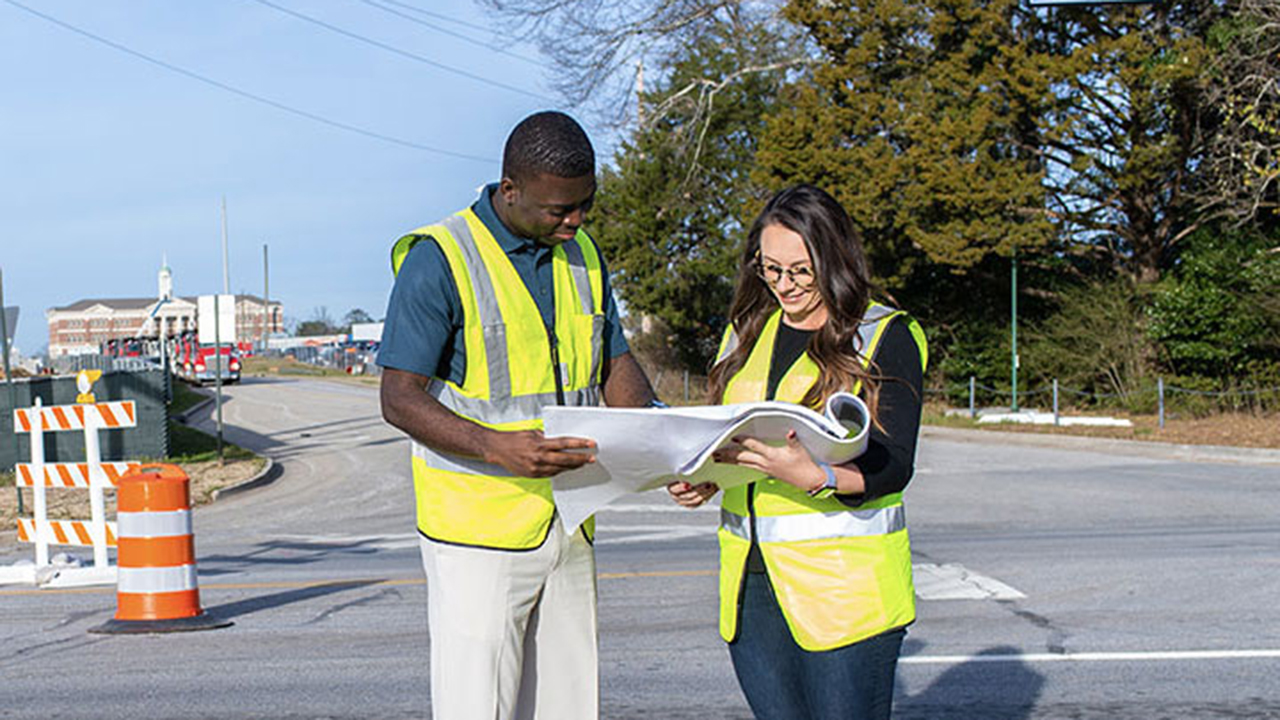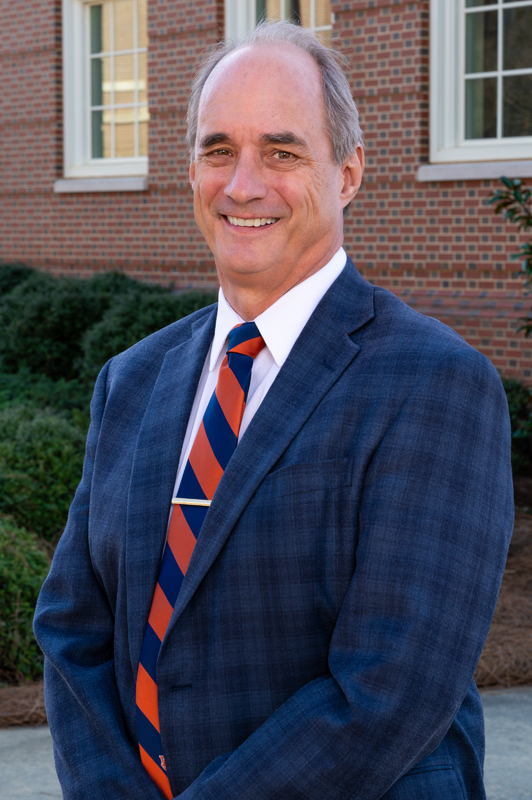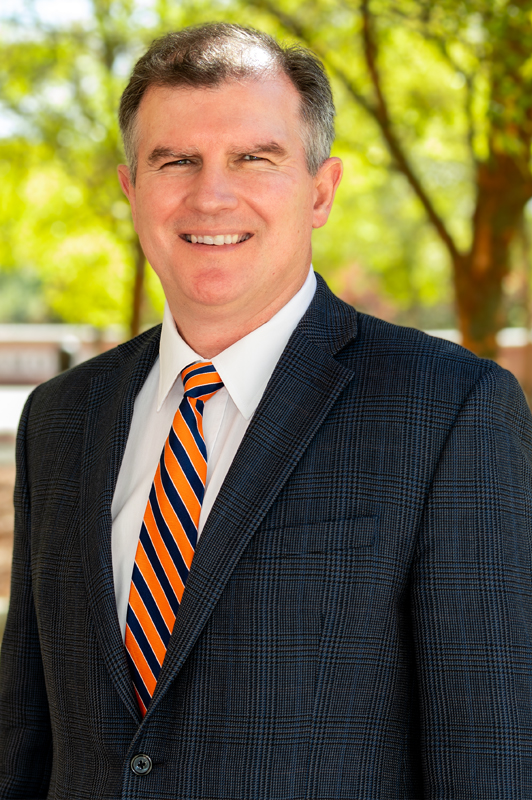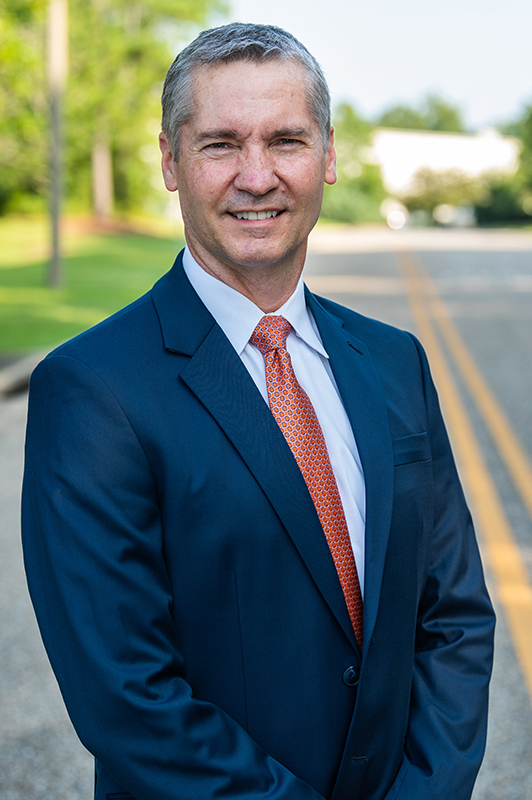AUTRI leads Auburn’s transportation research into the future
Published: Aug 19, 2024 10:00 AM
By Dustin Duncan
The faculty, staff and students at Auburn University’s Transportation Research Institute (AUTRI) conduct transformative research to facilitate smooth, safe and efficient travels for people, information and goods across Alabama and the nation.
Established in 2021, the inaugural director is Larry Rilett, Ginn Distinguished Professor in the Department of Civil and Environmental Engineering. AUTRI provides a unified presence and strategic direction for coordinating and conducting cutting-edge transportation-related research within the academic departments and research centers in the Samuel Ginn College of Engineering.
The institute gives greater visibility and a shared identity for all transportation-related research and educational programs at Auburn University.
AUTRI’s extramural transportation-related research is larger than any other portfolio on Auburn’s campus, thanks to the reputation of the units under the institute’s umbrella — the National Center for Asphalt Technology (NCAT), and its affiliated asphalt test track, the Highway Research Center (HRC), the Alabama Transportation Assistance Program (ATAP) and the GPS and Vehicle Dynamics Laboratory (GAVLAB).
“Since its inception, AUTRI has developed a number of new, multi-disciplinary research and educational initiatives with existing and new sponsors, including the U.S. Army Corps of Engineers and the Federal Motor Carrier Safety Association,” Rilett said.
Auburn University has hosted the annual Alabama Transportation Conference since 1958 in partnership with the Alabama Department of Transportation (ALDOT), allowing engineering researchers and practitioners to share innovative advances in transportation planning, engineering design and construction with state and federal highway personnel, county engineers, consulting engineers, construction contractors and construction material vendors.
HRC faculty and staff, led by Director Anton Schindler and supported by civil and environmental engineering faculty, conduct research on sustainability, resilience, safety, bridge engineering, geotechnical engineering, large-scale testing, materials, stormwater management, construction management, traffic operations, roadway design and workforce development.
NCAT was created in 1986 through a partnership with Auburn and the National Asphalt Pavement Association Research and Education Foundation. Its mission is to provide innovative, relevant and implementable research, technology development and education that advances safe, durable and sustainable asphalt pavements.
Led by Director Randy West, NCAT provides the most comprehensive asphalt pavement research program in the United States. Sponsors in Alabama and across the nation annually contribute millions of dollars in research funding to this program.
ATAP, also led by Rilett, aims to bring the newest technological developments in transportation to state and local transportation and public works agencies in Alabama and the nation. It is home to Alabama’s Local Technical Assistance Program, jointly funded by the Federal Highway Administration and ALDOT. It also runs the Safety Technical Assistance for Counties and Cities program and the ALDOT Employee Development Program.
In 2001, Auburn’s Department of Mechanical Engineering created the GAVLAB, led by the Bill and Lana McNair Professor of mechanical engineering, David Bevly, to conduct the critical research necessary for the success of connected and autonomous (CAV) vehicles. The GAVLAB researchers focus on controlling and navigating vehicles using GPS in conjunction with other sensors, such as inertial navigation system sensors. The GAVLAB researchers have developed nation-leading expertise in several CAV thrust areas, including sensor fusion/integration, online system identification, adaptive and robust control algorithms and vehicle state and parameter estimation. The GAVLAB CAV research products have been deployed in various transportation modes, including heavy trucks, passenger cars and off-road vehicles.
AUTRI faculty, research staff and students are highly qualified and recognized globally for their expertise in planning, designing, constructing, operating and maintaining the state of Alabama’s and the nation’s multimodal transportation systems. According to Rilett, the increased collaboration across the campus community will further enhance the university’s transportation research endeavors.
“For over 150 years, the transportation-related research, education, workforce development and technology transfer activities at Auburn have made Alabama’s, and the nation’s, transportation system safer and more efficient,” Rilett said. “Today’s transportation problems are much more complex and do not lend themselves easily to the historic single-researcher model of transportation research. The creation of AUTRI has allowed Auburn to develop large, multi-disciplinary teams that are well-placed to tackle the challenges of the 21st century.”
Media Contact: , dzd0065@auburn.edu, 334-844-2326

AUTRI provides a unified presence and strategic direction for coordinating and conducting cutting-edge transportation-related research within the academic departments and research centers in the Samuel Ginn College of Engineering.





